By Film Noir Blonde and Mike Wilmington
The Film Noir File is FNB’s guide to classic film noir, neo-noir and pre-noir on Turner Classic Movies (TCM). All movies below are from the schedule of TCM, which broadcasts them uncut and uninterrupted. The times are Eastern Standard and (Pacific Standard).
Pick of the Week
“The Killers” (1946, Robert Siodmak). Tuesday, Feb. 10, 10:15 p.m. (7:15 p.m.). Of all film noir’s femmes fatales, Ava Gardner as Kitty Collins in “The Killers” ranks as the most devastatingly efficient. She doesn’t waste time chit-chatting or getting to know a guy. Just a glance gets them hooked and firmly planted in the palm of her hand. “Swede” Andreson (Burt Lancaster) takes all of 10 seconds to fall for her and then get lured into “a double-cross to end all double-crosses.” Read the full review here.
Saturday, Feb. 7
11:45 p.m. (8:45 p.m.): “Citizen Kane” (1941, Orson Welles). A dark look at the sensational, profligate life of one of the world’s most powerful and egotistical newspaper magnates, the late Charles Foster Kane (modeled on William Randolph Hearst and acted by George Orson Welles). Still the greatest movie of all time, it’s also a virtual lexicon of film-noir visual and dramatic style, as seminal in its way as “The Maltese Falcon” or “M.” Scripted by Welles and one-time Hearst crony Herman Mankiewicz, photographed by Gregg Toland, with music by Bernard Herrmann and ensemble acting by the Mercury Players: Welles, Joseph Cotten, Everett Sloane, Dorothy Comingore, Agnes Moorehead, George Coulouris, Ruth Warrick, Paul Stewart, et al.
Sunday, Feb. 8
10 p.m. (7 p.m.): “Casablanca” (1942, Michael Curtiz).
12 a.m. (9 p.m.): “Gaslight” (1944, George Cukor). Set in foggy Victorian gas-lit London, this is the best of all the melodramas and noirs where a bad husband tries to drive his wife insane (or vice versa). Here, Charles Boyer gives the treatment to Oscar-winner Ingrid Bergman. Joseph Cotten, Dame May Whitty and teenage Angela Lansbury are among the bystanders. Based on the Patrick Hamilton stage play (and film) “Angel Street.”
Monday, Feb. 9
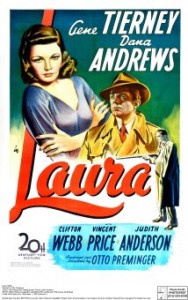 1 a.m. (10 p.m.): “Laura” (1944, Otto Preminger).
1 a.m. (10 p.m.): “Laura” (1944, Otto Preminger).
3 a.m. (12 a.m.): “Mildred Pierce” (1945, Michael Curtiz).
Tuesday, Feb. 10
7 a.m. (4 a.m.): “Julie” (1956, Andrew L. Stone). The same year she sang “Que Sera, Sera” for Hitchcock as the menaced mom in Hitch’s remake of “The Man Who Knew Too Much,” Doris Day played a comely stewardess stalked by her psycho ex-husband, Louis Jourdan, in this lady-in-distress thriller from the poor man’s Hitchcock, Andrew Stone.
9 a.m. (6 a.m.): “Crossfire” (1947, Edward Dmytryk).
10:30 a.m. (7:30 a.m.): “Suspicion” (1941, Alfred Hitchcock).
12:30 p.m. (9:30 a.m.): “Mystery Street” (1950, John Sturges). A good, smart police procedural, set partly at Harvard University, with a homicide cop and forensic scientist (Ricardo Montalban and Bruce Bennett), trying to crack a murder with sexual overtones.
2:15 p.m. (11:15 a.m.): “The Fallen Idol” (1948, Carol Reed). In 1948, a year before they made the nonpareil thriller “The Third Man,” director Carol Reed and screenwriter Graham Greene collaborated on another tilted-camera film-noir classic: this mesmerizing story of a French diplomat’s son(Bobby Henrey) , who hero-worships the embassy butler (Ralph Richardson). The boy mistakenly comes to believe his idol has murdered his wife and keeps unintentionally incriminating him. With Michele Morgan, Jack Hawkins and Bernard Lee. Stunning cinematography by Georges Perinal.
4 p.m. (1 p.m.): “After The Thin Man” (1936, W. S. Van Dyke). The first of many sequels to the smash hit 1934 movie of Hammett’s last novel “The Thin Man,” with William Powell and Myrna Loy as the peerlessly witty and stylishly sloshed Nick and Nora Charles. Here, they visit Nora’s San Francisco cousin and investigate a string of murders among her rich elite family. With Jimmy Stewart in one of his most atypical roles.
6 p.m. (3 p.m.): “Charade” (1963, Stanley Donen). Director Donen and screenwriter Peter Stone’s lush, polished and witty Hitchcock imitation stars Hitch’s favorite actor Cary Grant in perhaps his most Cary Grantian performance. Here, he’s a romantic detective/spy (or is he?) in an ultra-posh comedy thriller co-starring Audrey Hepburn, at her most winsomely, delicately beautiful. The movie, probably Donen’s best-loved after his great musicals “Singin’ in the Rain” and “Funny Face,” seems to be composed of equal parts of “North by Northwest,” “Notorious,” “To Catch a Thief” and Donen’s own Cary Grant movies (like “Indiscreet” and “The Grass is Greener”), with a dash of ’60s New Wave sauce and sass.
The movie couldn’t exist without Grant, who, mostly in a very Hollywoodish Paris, woos lady-in-distress Audrey (or does she woo him?). Both of them are threatened by a stellar band of villains and nemeses that includes Walter Matthau, James Coburn, George Kennedy and Ned Glass. The moody title song (Henry Mancini /Andy Williams) earned an Oscar nom. No Oscars went to Grant, of course. The next year, while picking up his Academy Award for writing the Grant comedy vehicle “Father Goose,” Stone said, “Cary just keeps winning these things for other people.”
Wednesday, Feb. 11
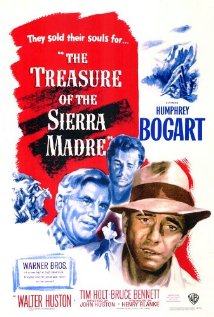 8 p.m. (5 p.m.): “All the King’s Men” (1949, Robert Rossen).
8 p.m. (5 p.m.): “All the King’s Men” (1949, Robert Rossen).
2 a.m. (11 p.m.): “The Treasure of the Sierra Madre” (1948, John Huston). “Treasure” is perhaps the finest work by writer-director (and here, for the first time, actor), John Huston. It’s a supreme western noir and one of the great Humphrey Bogart pictures.
Bogart is Fred C. Dobbs, a down and out American in 1925 in Tampico, Mexico, who hooks up with two other Yanks: tough but decent Bob Curtin (Tim Holt) and fast-talking, grizzled, expert prospector Howard (John’s father Walter Huston; he won the Oscar). The three treasure hunters strike gold in the Sierra Madre mountains, but they also hit a vein of darkness: the discord and violence that sudden riches can bring.
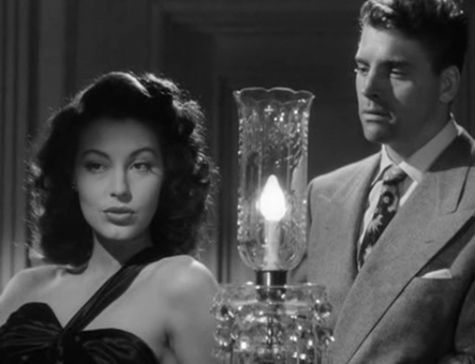

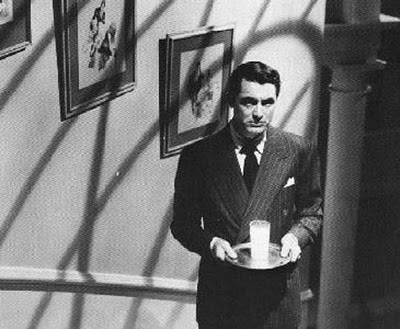
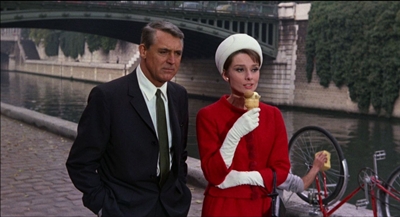










From FNB readers